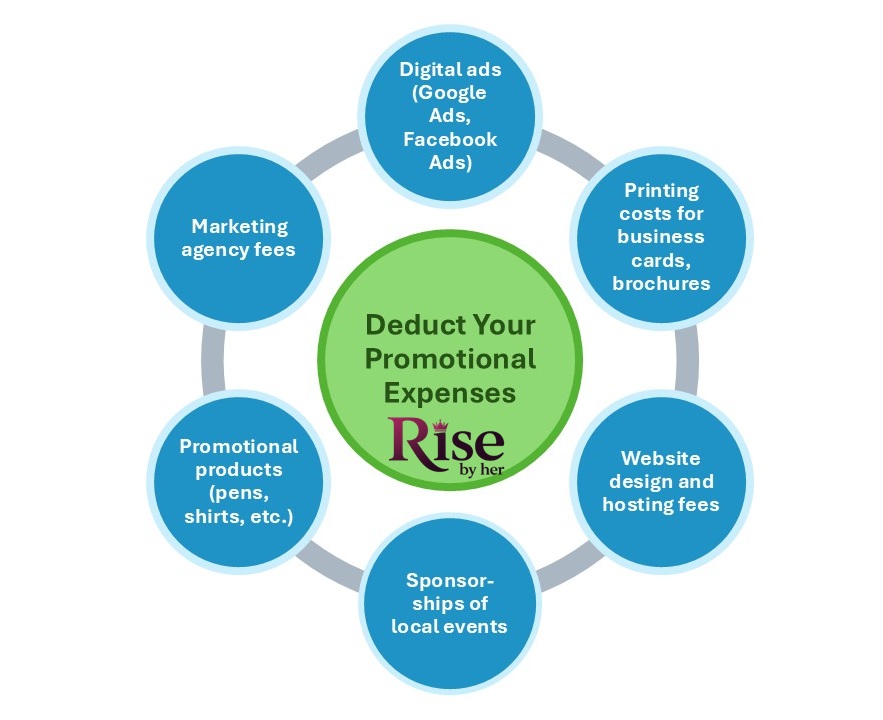As a woman entrepreneur, knowing which tax deductions you qualify for is key to protecting your profits and lowering your tax bill. In 2026, new opportunities and updated rules make the tax landscape more favorable, but it can still feel overwhelming if you are navigating it alone. Whether you run a small business, a fast-growing startup, or a side hustle, the right deductions can make a meaningful difference in your financial growth.
In this guide, you will find the most important tax deductions women entrepreneurs should know in 2026, along with practical tips on how to claim them correctly and stay fully compliant.
Home Office Deduction for Women Entrepreneurs: Maximize Your Workspace Savings
One of the most widely known tax deductions for women entrepreneurs is the home office deduction. If you run your business from home, you could be eligible for deductions related to your office space. The IRS allows you to deduct a portion of your home expenses if the space is used exclusively and regularly for business purposes.
What can be deducted:
- Rent or mortgage interest
- Utilities (electricity, water, internet)
- Property taxes
- Home insurance
- Office furniture and supplies
- Depreciation of home office space
How to calculate it: You can use the simplified method, where you deduct $5 per square foot of your home office, up to 300 square feet, or the regular method, where you calculate the actual expenses for your home and allocate them based on the percentage of your home used for business.
Business Vehicle Expenses Women Can Deduct for 2026
If you use your car for business purposes, you can reduce the related expenses. Whether you’re driving to meetings, delivering products, or running errands, your business vehicle costs can add up quickly. The IRS offers two ways to calculate your car-related deductions: the standard mileage rate and actual expenses.

What can be deducted:
- Fuel costs
- Maintenance and repairs
- Depreciation or lease payments
- Insurance
- Parking and tolls
- Vehicle registration fees
How to calculate it:
- Standard Mileage Rate: In 2025, the IRS sets a mileage rate (check IRS.gov for the current rate). You multiply the number of business miles driven by this rate.
- Actual Expenses: This method involves deducting the actual cost of gas, maintenance, insurance, etc., for the portion of use that’s business-related.
Marketing and Advertising Costs Women Entrepreneurs Should Claim
Marketing is essential to growing your business, and fortunately, advertising and promotional expenses are tax-deductible. Whether you’re running ads online, hosting a local event, or promoting your business through social media, all related costs can be deducted.

What can be deducted:
- Digital ads (Google Ads, Facebook Ads)
- Printing costs for business cards, brochures, etc.
- Website design and hosting fees
- Sponsorships of local events
- Promotional products (pens, shirts, etc.)
- Marketing agency fees
Why it matters: The more you invest in marketing, the higher your visibility and brand recognition. In 2026, leveraging SEO, content marketing, and paid advertising is crucial to staying competitive. By deducting these expenses, you can make your marketing efforts more cost-effective.
Business Meals and Entertainment Deductions Women Should Know
As a woman entrepreneur, networking, entertaining clients, and business meetings often happen over meals. Fortunately, the IRS allows you to deduct 50% of business-related meal and entertainment costs, provided they are directly related to your business.
What can be deducted:
- Meals with clients, customers, or potential partners
- Meals while traveling for business purposes
- Events or seminars with a meal component
Important tip: Keep detailed records of who you dined with, the purpose of the meeting, and receipts. The IRS may require this information during an audit.
Business Insurance for Women Entrepreneurs: Protect Your Company and Your Income
Business insurance is an essential expense, and the good news is that it’s deductible. Whether it’s general liability, professional liability, or workers’ compensation, you can deduct the cost of protecting your business from unforeseen risks.
What can be deducted:
- General liability insurance
- Product liability insurance
- Business interruption insurance
- Professional liability insurance (for consultants, contractors, etc.)
- Health insurance premiums (for self-employed individuals)
Why it matters: Insurance is a crucial part of risk management. By deducting premiums, your free up cash flow to reinvest in growing your business.
Depreciation of Business Assets: How Women Entrepreneurs Can Recover Big Purchases
If your business has significant assets, such as equipment, computers, or office furniture, you can depreciate these items and deduct their cost over time. Depreciation allows you to spread out the deduction for large purchases.
What can be depreciated:
- Office furniture (desks, chairs, etc.)
- Computers and other electronics
- Equipment used in manufacturing or service delivery
- Software (if it’s a long-term investment)
How to calculate it: Depreciation is typically done over several years, depending on the asset’s useful life. However, the IRS offers a Section 179 deduction, which allows you to deduct the full purchase price of eligible equipment in the year it’s bought, up to a limit.
Education and Training Deductions to Help Women Entrepreneurs Grow Their Skills
Investing in your education and development as a woman entrepreneur can be a tax-saving strategy. If you’re taking courses or attending seminars that are directly related to your business, the associated expenses are deductible.
What can be deducted:
- Courses, workshops, and webinars related to your industry
- Online certifications and programs
- Books and educational materials
Why it matters: As a business owner, staying current with industry trends and improving your skills is essential. These expenses not only contribute to your personal growth but also offer tax benefits that lower your taxable income.
Retirement Plan Contributions for Women Entrepreneurs: Save More and Reduce Taxes
One of the most effective ways to lower your taxable income is by contributing to a retirement plan. As a woman entrepreneur, setting up a retirement plan not only helps secure your future but also provides valuable tax deductions.
What can be deducted:
- Contributions to a SEP IRA, SIMPLE IRA, or Solo 401(k)
- Health Savings Account (HSA) contributions
Why it matters: These contributions are tax-deductible, and you can reduce your taxable income in the process. Plus, the money grows tax-deferred until you withdraw it in retirement.
Health Insurance Premiums Women Entrepreneurs Can Deduct
If you are self-employed and pay for your own health insurance, you can deduct 100% of your premiums. This is a valuable deduction that directly benefits your health and your business.
What can be deducted:
- Health insurance premiums
- Dental and vision insurance premiums
- Long-term care insurance premiums (under specific conditions)
Employee and Contractor Wages: How Women Entrepreneurs Can Deduct Payroll Costs
If you have employees or hire contractors, their wages and fees are tax-deductible. Whether you’re paying employees a salary or hiring independent contractors, these expenses lower your taxable income.
What can be deducted:
- Wages paid to employees
- Independent contractor fees
- Payroll taxes (Social Security, Medicare)
Conclusion: Maximize Your Tax Savings and Reinvest in Your Business
Tax deductions are a powerful tool for women entrepreneurs in 2026. By understanding the deductions available to you, you can reduce your tax liability and keep more of your hard-earned money to reinvest in your business. The key is to keep accurate records, work with a qualified accountant or tax professional, and stay informed about the latest tax laws. By taking advantage of these top tax deductions, you can give your business the financial boost it needs to thrive in today’s competitive market.
What tax deductions are you currently utilizing in your business? Let us know in the comments! Or, if you need help maximizing your tax savings, feel free to reach out to a tax professional.


